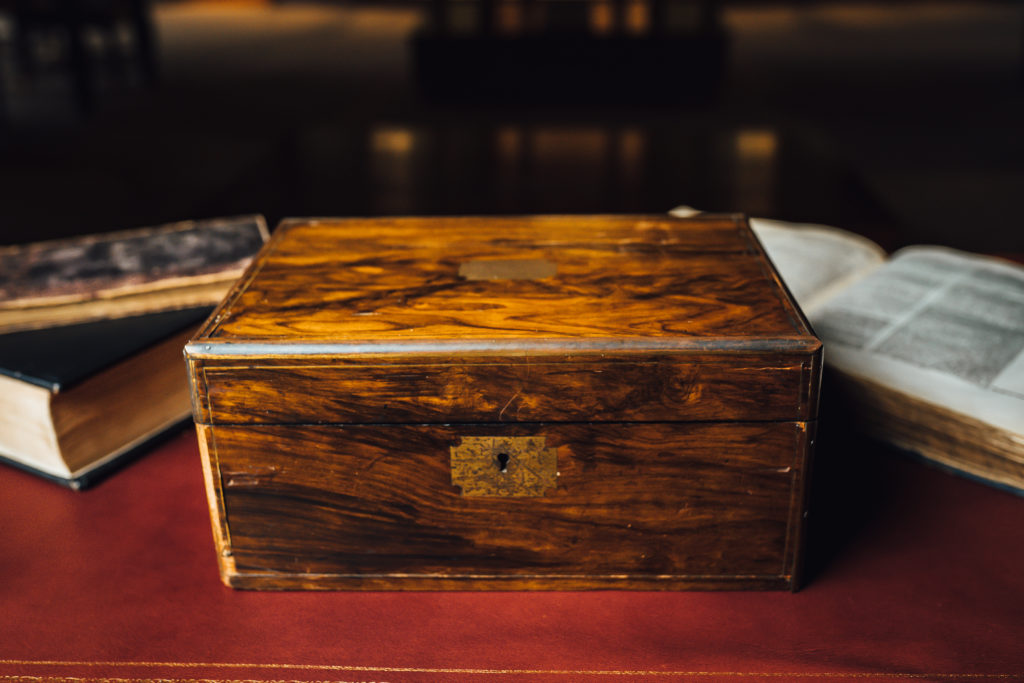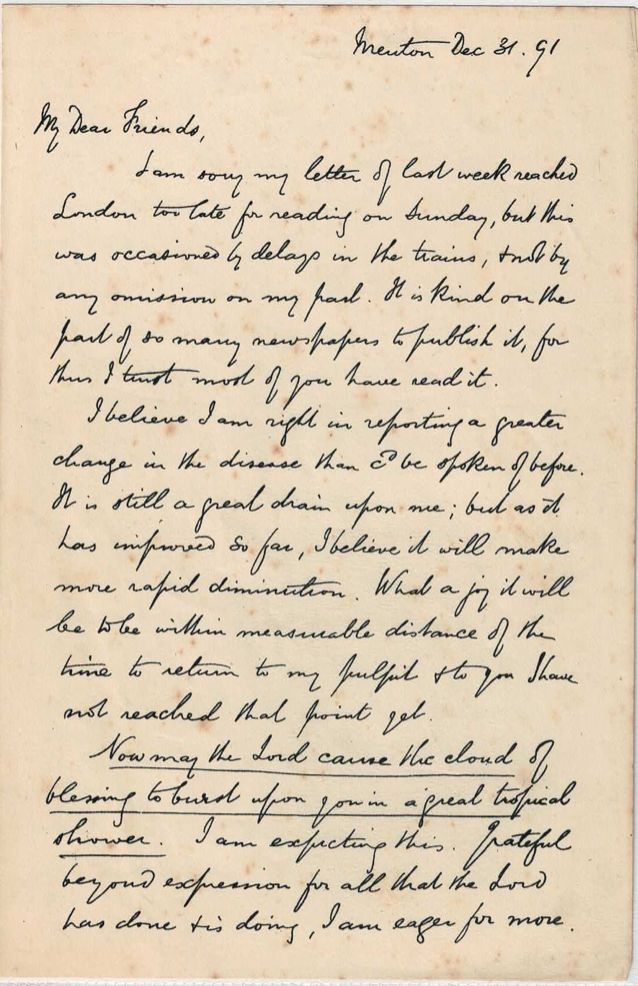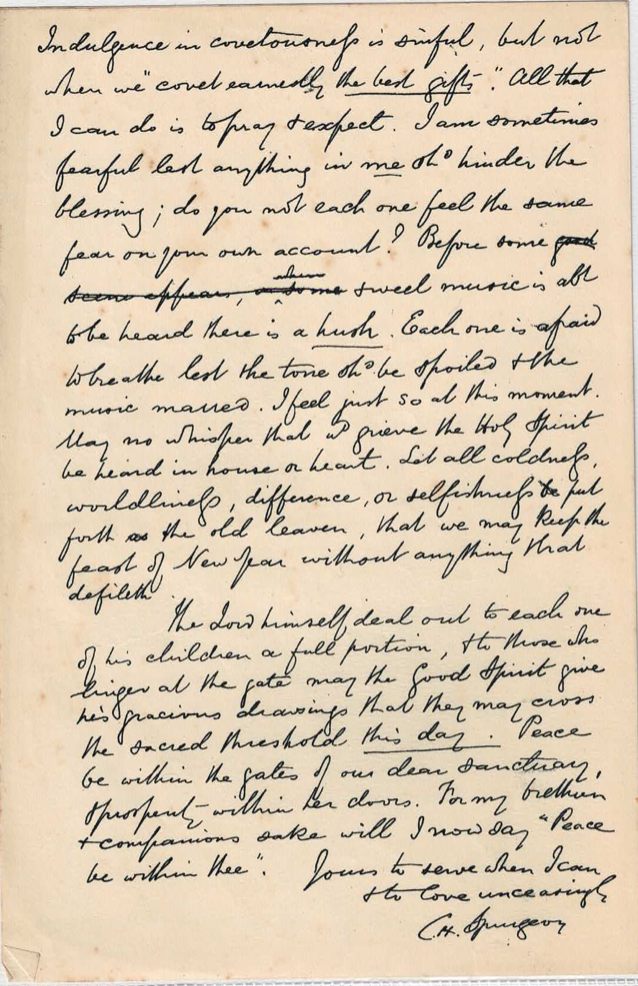
The final weeks of Spurgeon’s life were spent in sunny Menton, in southern France. Throughout his ministry, he had gone there to recover from his various ailments and overwork. Now, in the fall of 1891, Spurgeon was there once again. Under the care of his wife Susie and skilled doctors, the congregation fully expected him to recover and return to London to continue his famous ministry at the Metropolitan Tabernacle. Spurgeon himself held on to this hope. But this was not to be. On January 31, 1892, Spurgeon went to be with the Lord.[1]
Throughout his ministry, Spurgeon wrote many letters to his congregation during his travels. Even when traveling abroad, visiting new places, and preaching before thousands, Spurgeon never forgot his own church. In his letters to them, we see the affection of a pastor for his people, his confidence in his elders and deacons, and his dependence on his people for their prayers. During his final trip to Mentone, Spurgeon committed to writing a weekly letter back to his people, updating them on his situation and encouraging them to persevere. These letters comprise Spurgeon’s final pastoral words to his people.[2]
Over the next four weeks, we will be publishing Spurgeon’s last letters to his congregation, beginning on December 24 and ending on January 14. While nobody expected these to be his last words to his church, they are a fitting conclusion to his pastoral ministry. In them, we see Spurgeon’s confidence in God’s power to build up the church and save the lost, even apart from his own ministry. We see his call for his people to persevere in the truth of the gospel. And we see his evident love for them. In other words, what characterized Spurgeon’s ministry from the very first day continued to his last breath. May the same be true of pastors today.
Menton Dec. 31. 91
My Dear Friends,
I am sorry my letter of last week reached London too late for reading on Sunday, but this was occasioned by delays in the trains, & not by any omission on my part. It is kind on the part of so many newspapers to publish it, for thus I trust most of you have read it.
I believe I am right in reporting a greater change in the disease than could be spoken of before. It is still a great drain upon me; but as it has improved so far, I believe it will make more rapid diminution. What a joy it will be to be within measurable distance of the time to return to my pulpit & to you. I have not reached that point yet.
Now may the Lord cause the cloud of blessing to burst upon you in a great tropical shower. I am expecting this. Grateful beyond expression for all that the Lord has done & is doing, I am eager for more. Indulgence in covetousness is sinful, but not when we “covet earnestly the best gifts.” All that I can do is to pray & expect. I am sometimes fearful lest anything in me should hinder the blessing; do you not each one feel the same fear on your own account? Before some sweet music is about to be heard, there is a hush. Each one is afraid to breathe lest the tone should be spoiled & the music marred. I fell just so at this moment. May no whisper that would grieve the Holy Spirit be heard in house or heart. Let all coldness, worldliness, difference, or selfishness be put forth as the old leaven, that we may keep the feast of New Year without anything that defileth.
The Lord himself deal out to each one of his children a full portion, & to those who linger at the gate, may the Good Spirit give his gracious drawings that they may cross the sacred threshold this day. Peace be within the gates of our dear sanctuary, & prosperity within her doors. For my brethren & companions sake will I now say, “Peace be within thee.”
Yours to serve when I can & to love unceasingly,
C. H. Spurgeon


[1] For an account of Spurgeon’s last days and his funeral, see From Mentone to Norwood: The Final Journey of C. H. Spurgeon
[2] Spurgeon’s last sermon to his people was preached on June 7, 1891 The Statute of David for the Sharing of the Spoil